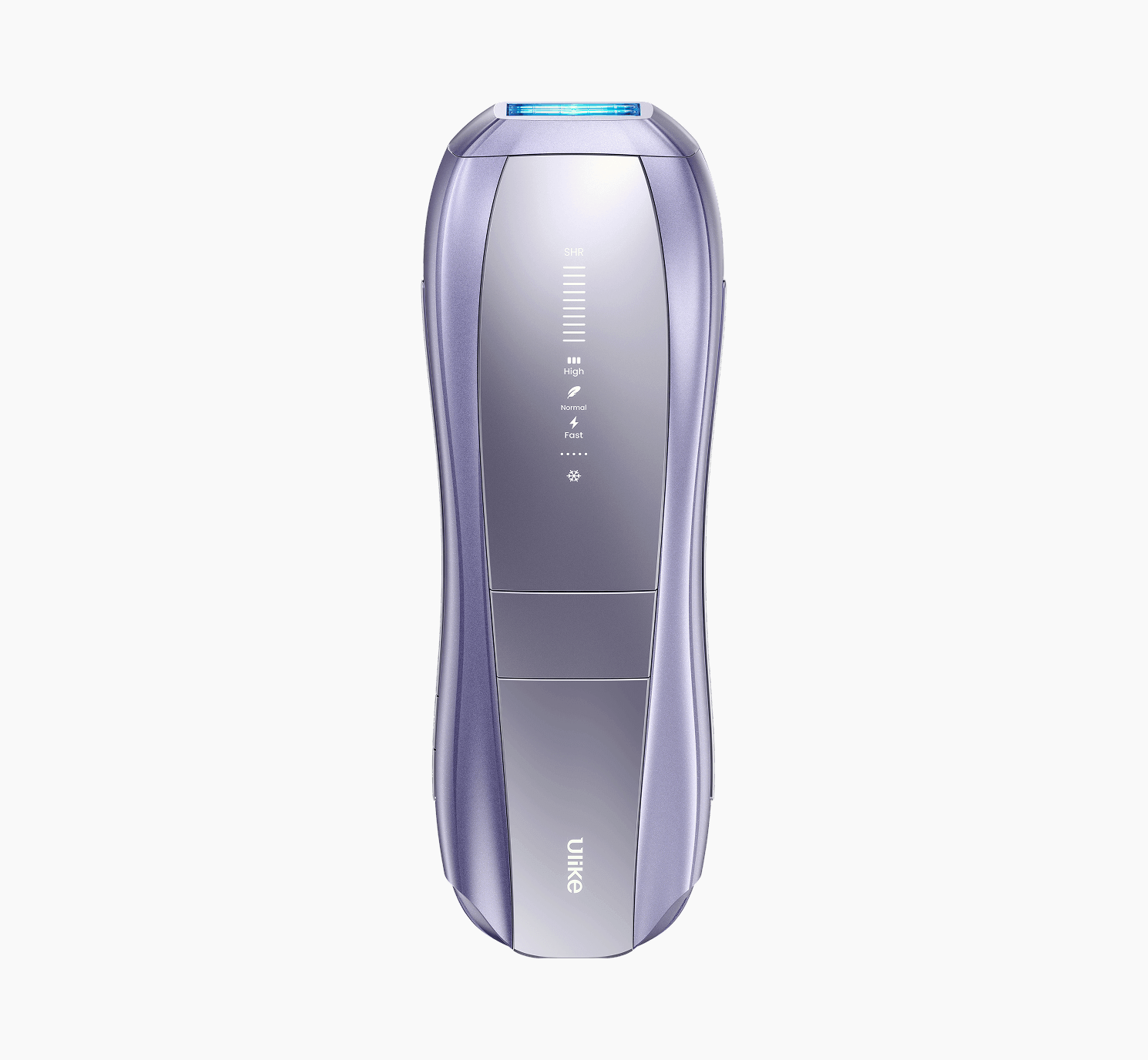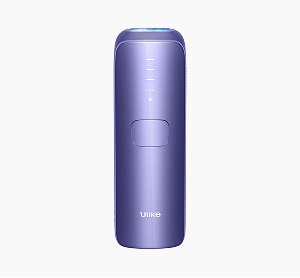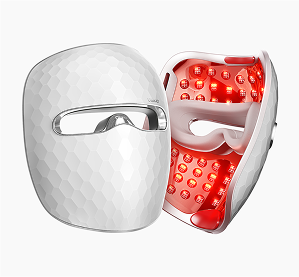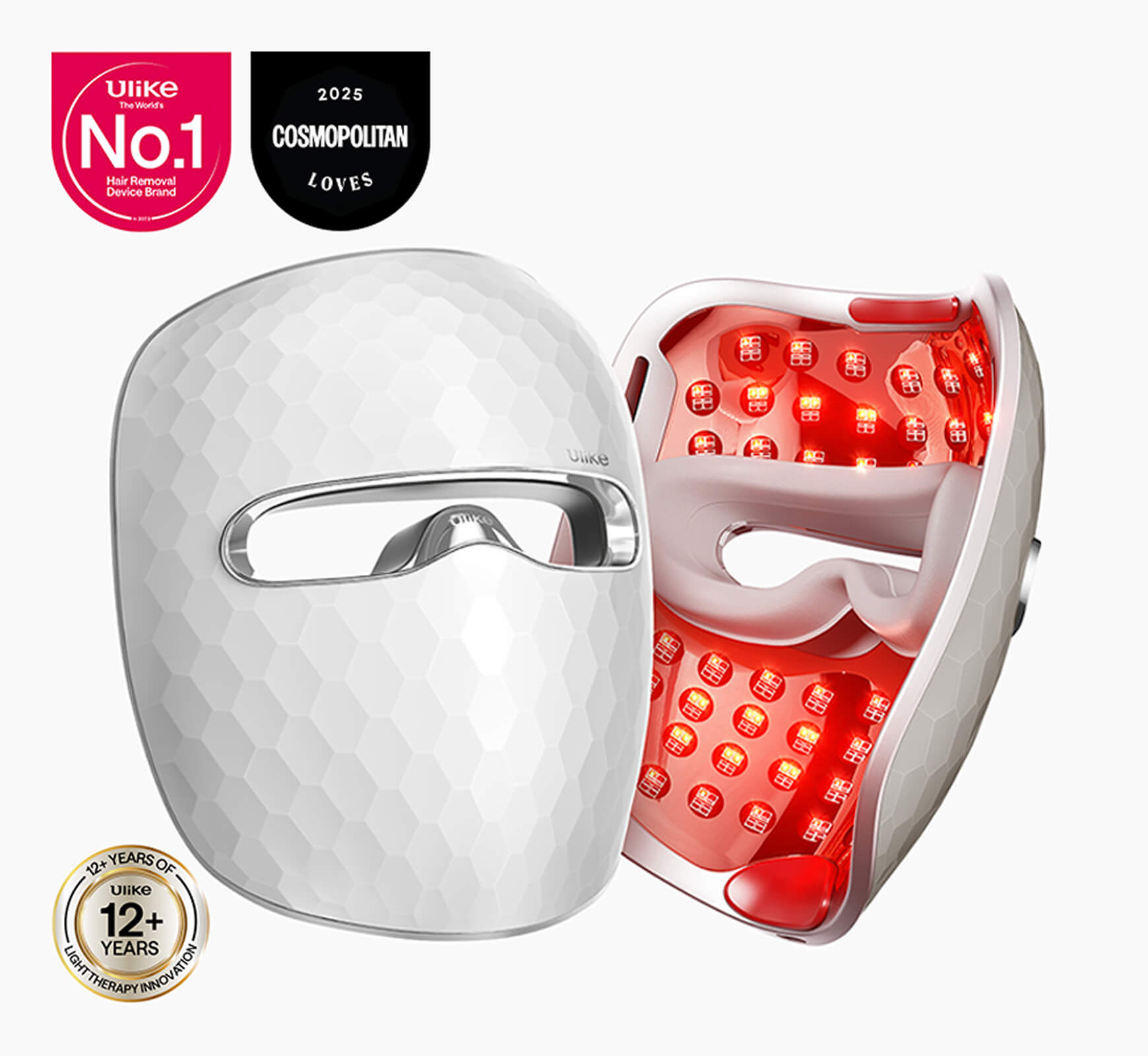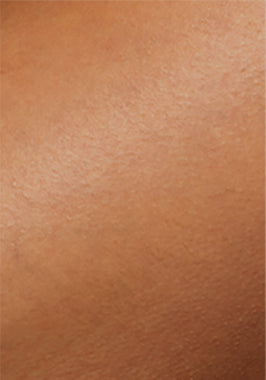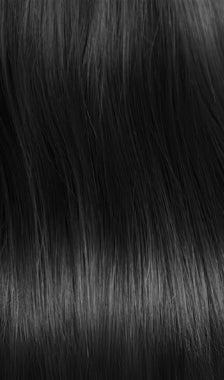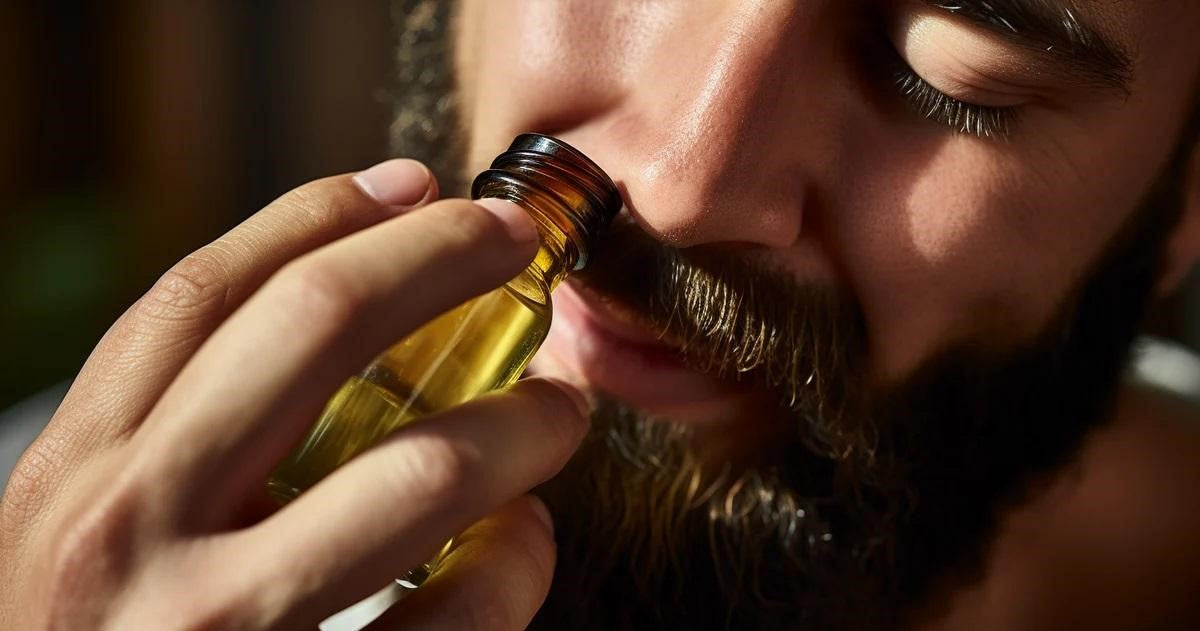
Does Rosemary Oil Help Beard Growth?
A grown out beard looks very masculine and a lot of women love men with beards. That’s why we will notice a lot of men growing out and shaping their beards for the most masculine look that suits their personality. Rosemary oil is very famous among women who are trying to grow their hair long. It has so many properties that favour hair growth.
Since a beard is also facial hair, we come across a question- does rosemary oil help beard growth? In this article we have discussed this question to understand if we can use rosemary oil for beard growth or not.
Table of Contents:- Part 1: Let’s Learn About Rosemary Oil First
- Part 2: What’s The Science Behind Beard Growth ?
- Part 3: Benefits of Rosemary Oil for Hair & Beard
- Part 4: How Can I Grow My Beard With Rosemary Oil?
- Part 5: What Are The Potential Side Effects Of Rosemary Oil On My Beard?
- Part 6: Some Precautions You Shall Take
- Part 7: What Is The Right Frequency Of Rosemary Oil For My Beard Growth?
Let’s Learn About Rosemary Oil First
 We will find the beginning of the use of rosemary oil from the 14th and 15th century onwards when humans started using it for beautification. The rosemary essential oil soon became famous for helping grow our hair long and prevent hair loss to some extent.
We will find the beginning of the use of rosemary oil from the 14th and 15th century onwards when humans started using it for beautification. The rosemary essential oil soon became famous for helping grow our hair long and prevent hair loss to some extent.
What Are The Components Of Rosemary Oil?
Rosemary oil includes a lot of components and each component helps in growing long hair in one or the other way:
- 1,8-Cineole (Eucalyptol): Improves scalp circulation
- Alpha-pinene: Reduces hair loss
- Camphor: Stimulates scalp blood flow
- Borneol: Promotes scalp health
- Verbenone: Repairs hair follicles
- Camphene: Reduces scalp inflammation
- Limonene: Antimicrobial properties
- Beta-pinene: Boosts hair growth
- Linalool: Soothes scalp
- Myrcene: Protects hair follicles
Rosemary Oil Across Ancient Traditions
Our ancestors throughout the globe have used rosemary oil for skincare and haircare:
- We know that ancient Egyptians excelled at advanced herbology and they used rosemary oil for aroma and therapies for their skincare and haircare.
- The ancient Greeks found medicinal properties in rosemary oil and that it beautifies our skin and hair.
- During the mediaeval era, the Romans and other European civilisations found rejuvenating properties in rosemary oil and used it for the same.
What’s The Science Behind Beard Growth ?
 Our beard growth completely depends on our genes, hormones, physical activities, and health. If we have a history of dense and long beard in our ancestors, we should be blessed with their genes. Also, if our body has a proper balance of hormones, we should be able to grow long and dense beard. Staying physically active will keep our blood circulation maintained and improve beard health. Similarly, no smoking and alcohol will also improve our health and support beard growth.
Our beard growth completely depends on our genes, hormones, physical activities, and health. If we have a history of dense and long beard in our ancestors, we should be blessed with their genes. Also, if our body has a proper balance of hormones, we should be able to grow long and dense beard. Staying physically active will keep our blood circulation maintained and improve beard health. Similarly, no smoking and alcohol will also improve our health and support beard growth.
Rosemary oil will improve blood circulation wherever we apply it and help improve hair growth. It will also eradicate dandruff and keep our scalp from getting dry. Rosemary oil also has hair strengthening properties and with that, it will help us prevent hair loss.
Benefits of Rosemary Oil for Hair & Beard
Rosemary Oil Supports Hair Follicles
Rosemary oil has verbenone, which repairs our hair follicles and borneol that will promote our scalp’s health. This way, rosemary oil can support our hair follicles so that they can grow strong and long hair whether it is beard hair or scalp hair.
Rosemary Oil Encourages Blood Circulation
Camphor in rosemary oil is a component that stimulates blood flow. When the blood flow increases, our hair follicles will get more nutrition and oxygen, which we need to grow strong and long hair.
Rosemary Oil Has Antimicrobial properties
Limonene is one active component in rosemary oil, which has antimicrobial properties. Micro biotic elements should not affect our scalp or hair follicles, which will help us get long hair.
We Will Notice Less Dandruff & Itchiness On Our Scalp
One of the benefits of rosemary oil that we get is that it can prevent dryness on the scalp and eliminate dandruff. Itching usually occurs if we have dandruff and/or if the scalp is dry. Rosemary oil cures both the problems and we will notice less dandruff and itchiness overall. That’s why rosemary oil for hair growth is very popular.
How Can I Grow My Beard With Rosemary Oil?
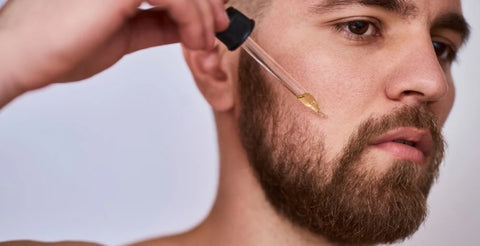
1. Choose Between Pure Rosemary Oil & Its Diluted Variants
Pure rosemary oil will be stronger than its diluted variants. We recommend that you should dilute pure rosemary oil with other oils like coconut oil, jojoba oil, or even mustard oil, whatever you find pleasing. Pure rosemary oil will be strong and you might notice side effects.
2. Follow DIY Rosemary Oil Recipe Targeting Beard Growth
To make a DIY beard growth oil from rosemary, we can heat some carrier oil like coconut or jojoba oil with fresh rosemary leaves. Once the oil turns slightly brown, turn off the flame and let it cool. Then we will filter it and separate the oil from the leaves. We can now apply this separated oil on our beard.
3. Apply The Oil In The Right Manner
We suggest that you should apply oil in different stages. Apply small amounts of oil to the beard at a gap of 4 to 9 hours. This will give your skin some time to absorb the rosemary oil and process it. We advise that you should not apply a lot of oil all at once.
4. Maintain Regularity In Your Routine
We should create and follow a routine. We can set at what time we will apply rosemary oil on our beard and be wise with the routine. Skipping any oiling sessions will affect our beard growth speed.
What Are The Potential Side Effects Of Rosemary Oil On My Beard?
 Allergic Reaction
Allergic Reaction
If we use strong or pure rosemary oil or apply too much oil, especially if we have just begun with the routine, there is a chance that we develop an allergic reaction to the oil. Especially, if we have sensitive skin or if we are not habitual of oils on our beard, our skin can react badly.
High Skin Sensitivity
Rosemary oil can make our skin more sensitive either temporarily or chronically. If we start feeling too much sensitivity on our skin after we started using rosemary oil, perhaps it’s a side effect of it.
Unexpected Interference With Your Current Medications
Sometimes rosemary oil may prove to be incompatible with any medicines that we might be consuming. There is a chance that anticoagulant, antihypertensive, and diabetes medicines can create a disturbance in our body.
Some Precautions You Shall Take
Do A Patch Test
If you are one such person who does not use oils on the body or if you are using rosemary oil for the very first time, we suggest that you should definitely do a patch test. To do a patch test, apply 3-4 drops of diluted rosemary oil on the beard near the sideburns area. Massage properly and see what happens in the next 48 hours. If there are no temporary skin issues then it should be safe on you.
Revise Your Medical & Allergic History
If you are taking any medicines regularly, you should ask your doctor if any of them can interact with rosemary oil and create a disturbance in your body. But if you are shy to speak to your doctor, then check on the official website of the medicine manufacturer for any such details. Also, if you have any history of skin allergies, you should rethink using rosemary oil.
What Is The Right Frequency Of Rosemary Oil For My Beard Growth?
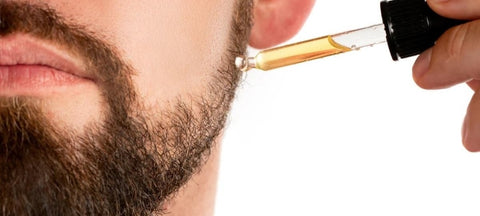 Some common questions about the use of rosemary oil include: how often should I use rosemary oil for beard growth? We recommend that you begin using 3-4 drops of rosemary oil on alternate days and just once throughout the day. After 2-3 weeks when your skin adapts to the oil, you can apply rosemary oil daily. After a few weeks, it is okay to apply rosemary oil daily and twice a day.
Some common questions about the use of rosemary oil include: how often should I use rosemary oil for beard growth? We recommend that you begin using 3-4 drops of rosemary oil on alternate days and just once throughout the day. After 2-3 weeks when your skin adapts to the oil, you can apply rosemary oil daily. After a few weeks, it is okay to apply rosemary oil daily and twice a day.
Conclusion
When we talk about rosemary oil for hair growth, it is a practically proven way to get long hair. But for a beard, there can be some variations because the scalp and facial skin are different and oils work differently on both of them.
So does beard growth oil work if you make it using rosemary: yes, it does. Then some people also ask, does coconut oil help beard growth? It may or may not depending on how our skin reacts to it.

Why is Pubic Hair so Thick: Causes, Insights, and Solutions

Ulike Air 10 vs Philips Lumea 9000: Which Device Is Better?

